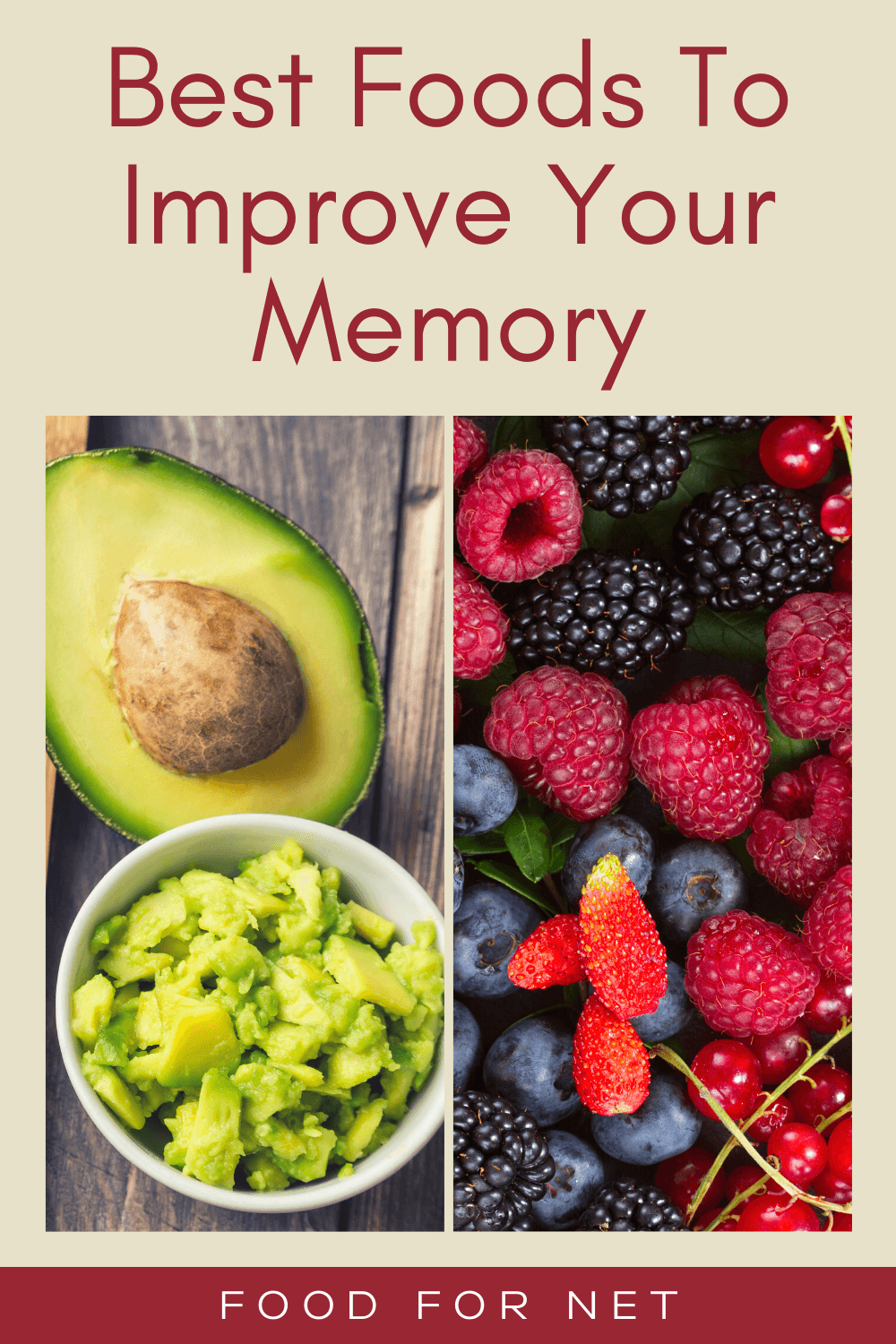
It’s easy to turn to techniques and tools to improve your memory, but sometimes the best solutions are in our cupboards instead. Research has shown a strong link between our digestive systems, our guts, and our brains, suggesting that what we eat can influence our brain function, including our ability to remember. So, in this post, we’re taking a close look at foods for memory, focusing on the best choices to help improve your memory.
You’re probably already aware of some general principles. For example, getting healthily and getting enough nutrients is critical for promoting your memory. Doing so gives your body the building blocks that it needs. Being deficient in a given vitamin or mineral could lead to problems further down the line.
Similarly, probiotic foods are often powerful. These help to promote your gut health, which can influence many other parts of your body, including your memory.
We’re going to talk about some of the most important foods in this post, focusing on ones that have a clear link to memory. After all, foods impact the body differently, so the best foods for one situation won’t be the best ones for another.
As always, these foods aren’t guaranteed to improve your memory. But, they may help a little, especially if you also focus on healthy habits as well.
Foods To Improve Your Memory
- Berries
- Dark Chocolate
- Grapes
- Eggs
- Fish and Shellfish
- Yogurt
- Cruciferous Vegetables
- Dark Leafy Greens
- Chia Seeds
- Sunflower Seeds
- Salads
- Avocado
- Rosemary and Mint
- Walnuts
- Soy Products
- Keto Foods
- Beets
- Watermelon
- Drinks For Your Memory
Berries
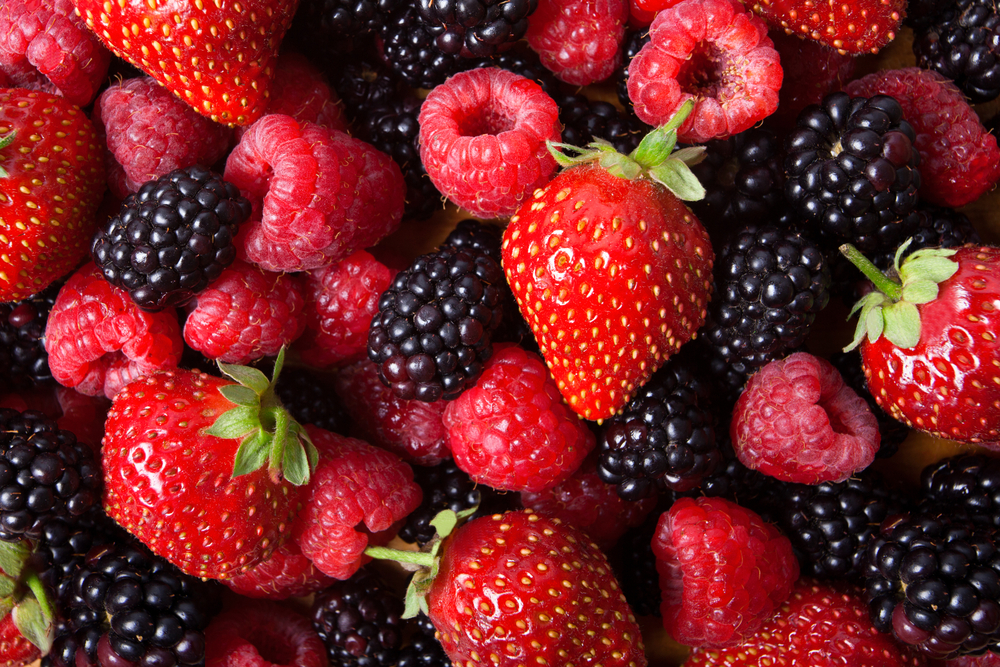
It’s hard to go wrong with berries. They’re delicious and are full of antioxidants. Chief among those are the anthocyanins, which are powerful pigment molecules.
Plus, there are literally hundreds of different berries to choose from, so you’ll never get bored.
The antioxidants in berries are the main reason that they’re linked to memory.
Blueberries are easily your best choice, as they have a high concentration of beneficial compounds. They’re also easy to use. You can even just eat them by the handful or throw them in a smoothie.
Blueberries have even been studied for their role in the brain. They’re thought to help improve memory and could decrease memory loss.
Don’t be afraid to branch out either. Each type of berry has a different balance of nutrients and plant-based compounds. Including many of them in your diet gives you access to a wide range of nutrients.
And, in the end, variety in your diet is almost always the best choice. This helps ensure that there aren’t any nutritional gaps. Heavily restrictive diets don’t tend to be as good for you, even if all the foods you’re focusing on are healthy in their own right.
Dark Chocolate

Dark chocolate has been rapidly gaining traction as a superfood. The benefits mostly come from the compounds in cocoa, including a variety of flavanols and other antioxidants.
Because of this, the best chocolate for your health will have a high cocoa content and few added ingredients. Look for products with at least 70% cocoa. Ones with cocoa percentages of 85% and even higher are better. Just make sure there isn’t too much added sugar.
Dark chocolate does have an intense flavor, so you might need to start with around 70% cocoa and build up from there. Be careful about portion sizes too. After all, dark chocolate is high in calories.
The benefits of dark chocolate are many, including the potential to decrease stress, reduce anxiety, and even fight depression. Dark chocolate can also help improve blood flow in the brain. This effect could help with cognition and memory.
Grapes
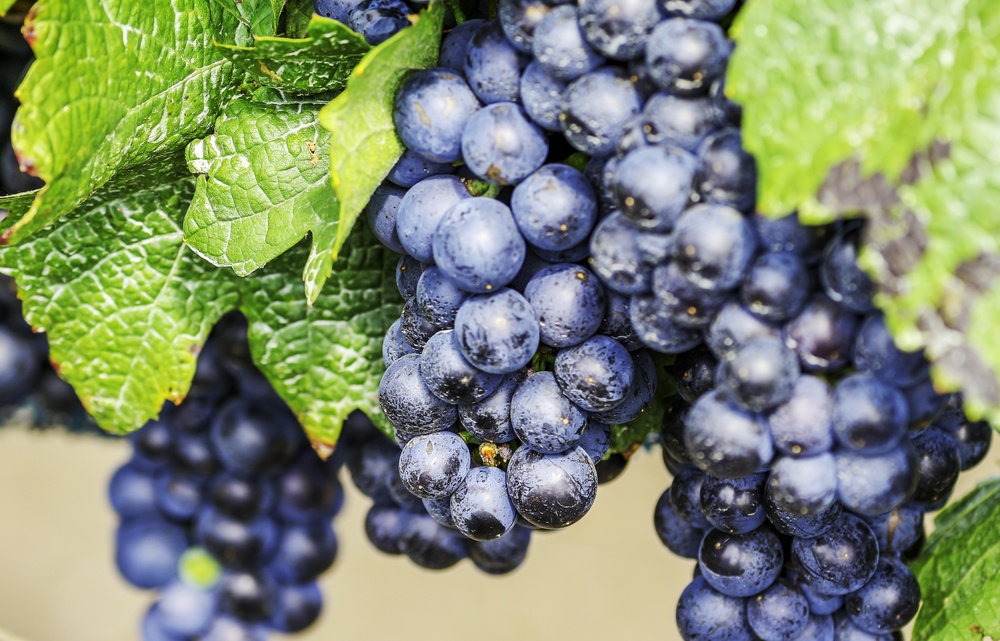
Like most fruit, grapes are rich in antioxidants. The amount varies depending on the type of grape you choose. That’s not too surprising, as grapes come in many types, including black, red, white, and pink – not to mention all the individual varieties in each of those types.
One of these antioxidants is a type of polyphenol called resveratrol. This one has been studied in-depth and is thought to promote various benefits, including improvements in memory.
Interestingly, many of the antioxidants in grapes survive fermentation, which means you’ll find them in wine. The effect could even mean that having a glass of red wine every so often helps with your memory. Of course, you’ll need to moderate your red wine intake. We all know that too much alcohol isn’t good for your memory or for your health in general.
Eggs
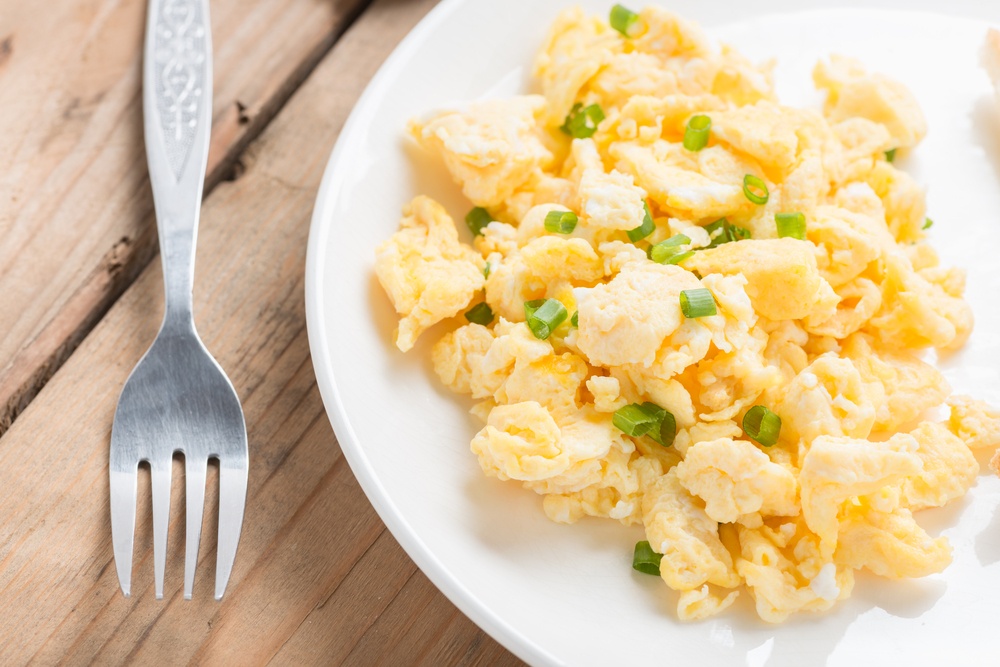
Eggs are a dense source of nutrients, so it’s hardly shocking that they’re good for your brain. Some of the important nutrients include folate, vitamin B12, and choline.
Choline is perhaps the most interesting, as it’s a micronutrient. It is used to make acetylcholine, which plays a role in your memory, mental function, and mood. Because choline is a micronutrient, you don’t need a large amount of it. Even so, many people simply aren’t getting enough.
Egg yolks are an easy way to get your choline levels up to where they should be.
Let’s not forget about the other nutrients in eggs either, including the B vitamins. This collection of vitamins has a variety of roles in the brain. It’s also easy to be deficient.
You won’t get all the nutrients that you need from eggs. Still, they’re a great way to boost your nutrient intake and help you to stay on track.
Fish and Shellfish

Who doesn’t know about the health benefits of fish? Getting more fish in your diet is one of the most common health recommendations out there.
There are multiple reasons for the advice. Fish offers many important nutrients, contains high-quality protein, and offers plenty of omega-3 fatty acids. Those same benefits apply to shellfish too.
The omega-3 fatty acids are particularly interesting. They’ve been linked to many health benefits, including decreased depression and anxiety, along with less stress and improved brain function. There’s even a suggestion that omega-3 may protect the brain against cognitive decline.
As always, we don’t know the full effects of omega-3 fatty acids. The human body is a very complex system, after all. Plus, many studies have focused on supplements rather than whole foods, which complicates matters further.
Even with incomplete evidence, there’s enough to suggest that omega-3 fatty acids are helpful. Besides, with so many other important nutrients in fish, how can you go wrong?
For example, some fish and shellfish are rich in B vitamins, which have been linked to the brain and memory. Vitamin B12 is the most significant here, although other B vitamins are present too.
B vitamins are water soluble. This means that we need to get them in our diet most days. Fish and shellfish are fantastic ways of doing just that.
Yogurt
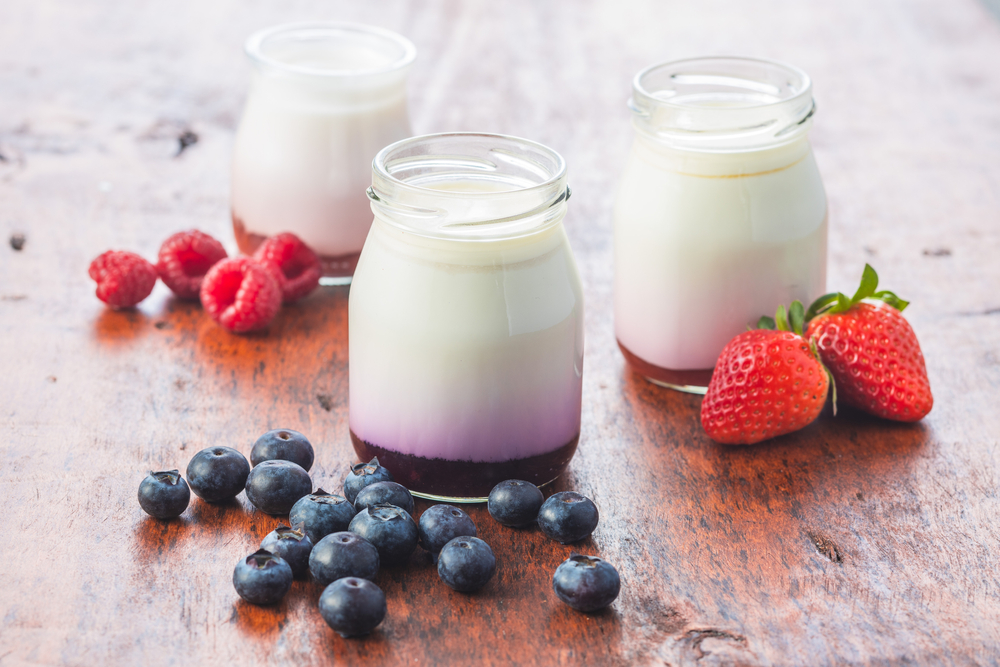
Here’s another interesting addition Yogurt has multiple advantages. It provides you with many nutrients from dairy, including calcium. Yogurt offers some protein too. Choose Greek yogurt if you’re looking for protein, as this has been strained and contains more protein than your average yogurt.
Yogurt can be a source of probiotics too, as long as you choose one that states ‘contains live cultures’ or something similar on the label. The probiotics are reason enough to eat yogurt regularly, as they’ve been linked to a variety of physical and mental benefits.
You could also turn to full-fat yogurt.
That recommendation might sound strange, as low-fat dairy is often seen as healthier. However, there’s growing recognition that fat isn’t as bad as we once thought. It can even have some benefits.
In the case of yogurt, you’re getting some medium chain triglycerides (MCTs). MCTs are the fatty acids that you find in coconut oil too and they’re popular among keto dieters. MCTs could easily help promote brain health and memory.
Cruciferous Vegetables
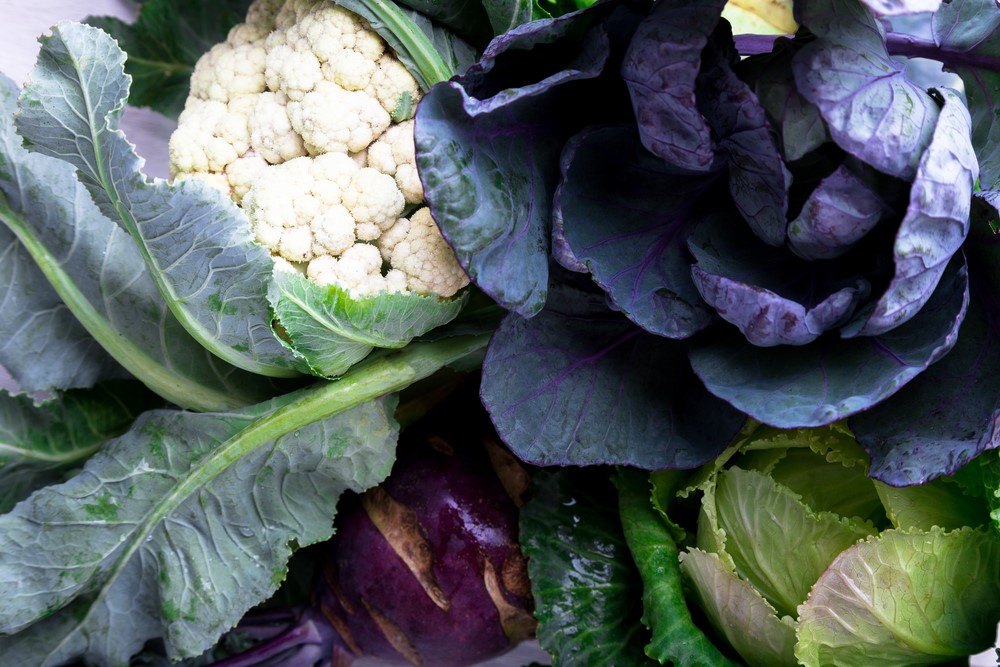
Diets that are rich in fruits and vegetables help you to stay healthy in many ways. This includes boosting your brain function and your memory. Cruciferous vegetables may be particularly important here.
The carotenoids and folate in the cruciferous vegetables are two reasons for this effect. These may help to decrease the levels of homocysteine, which has been linked to cognitive decline.
There are glucosinolates present too. These are sulfur-containing compounds that give cruciferous vegetables their familiar bitter taste. Some theories suggest that these have a neuroprotective effect.
Let’s not forget all the familiar features of cruciferous vegetables too, like fiber, antioxidants, and vitamin K.
There’s one final advantage too – cruciferous vegetables are versatile. There are many to choose from and they can be used in countless recipes. If you’re not fond of the flavor, why not focus on cauliflower? This is a mild vegetable that’s often used to make cauliflower rice and many low carb foods.
Dark Leafy Greens

Dark leafy greens fall into the category of cruciferous vegetables, but they have advantages of their own. For one thing, the greens are all nutrient dense. This means that they have very few calories, along with plenty of nutrients per serving.
There have also been studies that directly link dark leafy greens to decreased memory loss with age. This outcome suggests that greens could influence memory and cognition in younger people as well.
There will also be differences depending on the type of leafy green that you choose. For example, kale is one of the most nutritious options and is high in vitamin K, vitamin A, and vitamin C. Spinach offers a different balance, including calcium, vitamin K, vitamin A, folate, and manganese.
Such differences in nutrients are a reminder that a diverse diet is important.
Chia Seeds
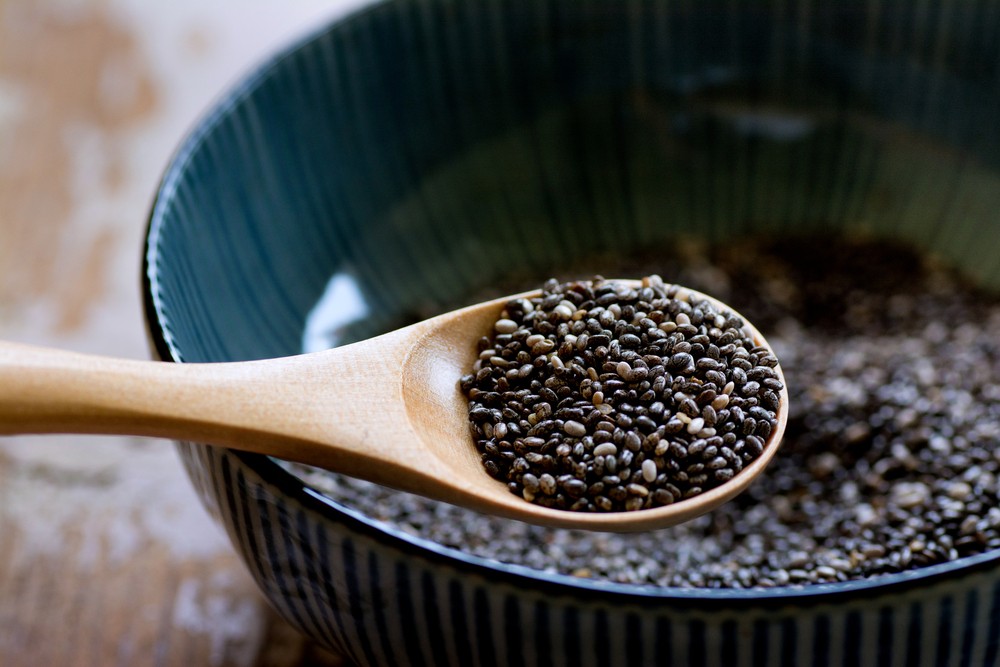
We mentioned fish and seafood earlier. They’re both powerful because of their omega-3 fatty acid content. However, they’re not your only options. You can find plant-based omega-3 fatty acids as well, which are called ALA (alpha linolic acid). These aren’t as powerful as omega-3 fatty acids from fish, but it’s sometimes easier to get the plant-based versions into your diet.
Chia seeds are a fantastic example. Not only are they a decent source of ALA, but they are packed with many other important nutrients.
They’re also tiny, with barely any flavor. You can easily scatter them across any meal or include them as a smoothie ingredient. Or, why not make a chia pudding? This can be as simple as mixing chia seeds with a plant-based milk and some type of flavoring ingredient (like cocoa powder).
Sunflower Seeds
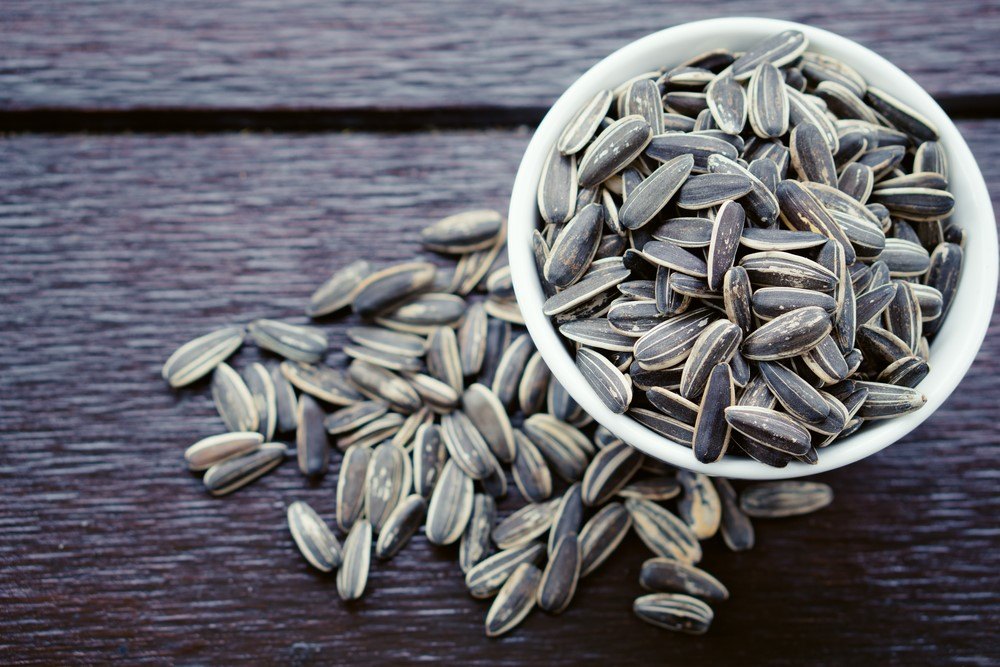
Sunflower seeds are larger than chia seeds and have more flavor, but they’re still easy to use. You can sprinkle them on top of a salad or a meal to provide a nutritional boost.
This time, the vitamin E in sunflower seeds is one reason for their power. You can get roughly a third of your daily vitamin E intake from an ounce of the seeds. That’s impressive. You don’t even need to use the seeds in a recipe. You could just eat a handful of roasted sunflower seeds on their own.
Sunflower seeds include thiamine too. This is one of the B vitamins and has been linked to memory and cognitive function.
Besides all that, sunflower seeds are a healthy snack option. They’re rich in protein and good fats, while being low in sugar. That combination means that the nuts help to fill you up and keep your blood sugar stable.
Salads
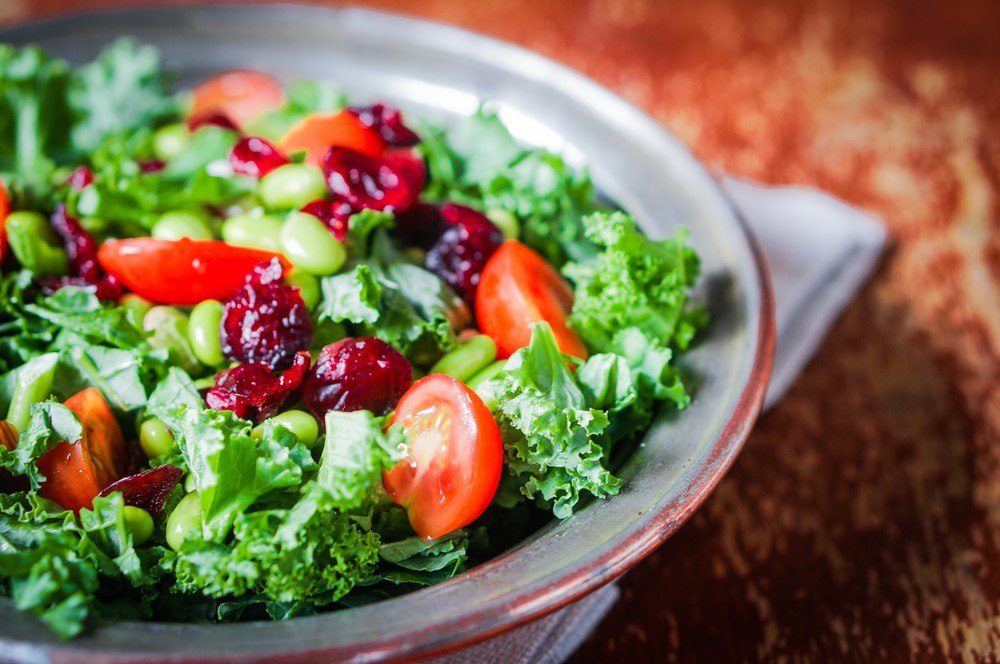
Combining multiple memory-boosting ingredients in a single meal is a powerful idea. Why not start with a salad? After all, these often use leafy greens as a base and we know how good those are for your memory.
You can then add other important ingredients, including walnuts and even some fruit. If you want some protein, canned salmon could be an easy choice or perhaps a chopped-up egg.
Don’t forget the salad dressing either. You’ll need to be careful here, as commercial salad dressings are often high in calories, sodium, and sugar. Making your own oil-based dressing is generally a better idea. We’re suggesting oil-based, because vegetable oils are often high in vitamin E. This antioxidant is useful for your brain and memory.
Olive oil is an option too. This provides many heart healthy fats. Plus, you can drizzle it over the salad without needing to make a complex salad dressing.
Avocado
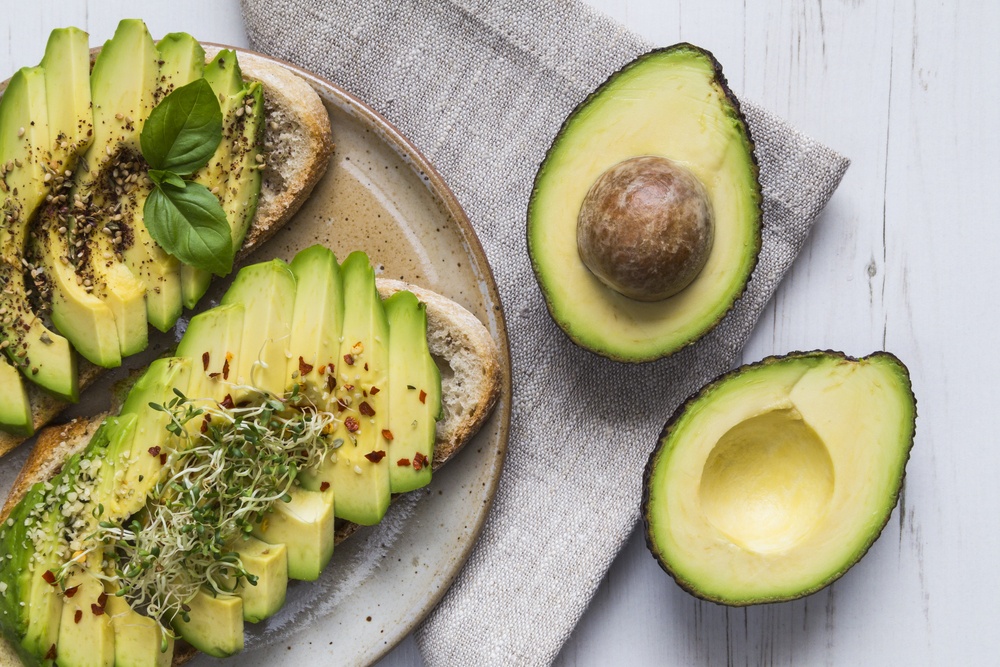
With its high fat content, avocado can often seem like a decadent treat. Yet, the fruit also has some nutritional advantages. For one thing, it’s rich in healthy fat. It’s easy to see how this is important, as the brain mostly consists of fat anyway.
Avocado contains numerous antioxidants too, including vitamin C and vitamin E. These have both been linked to cognitive benefits. One study also found that eating avocados daily can improve memory in seniors.
Rosemary and Mint
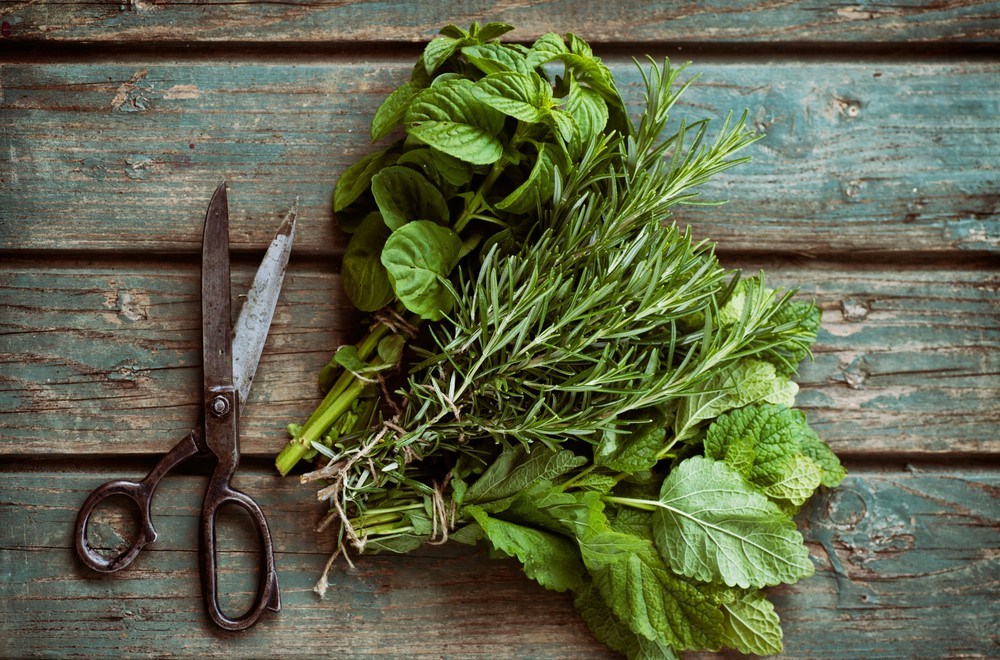
There are some herbs we need to talk about too, including rosemary and mint. Both can help to improve blood flow to the brain. Which then impacts your memory.
The scent of the herbs has impacts as well. For example, the smell of rosemary can be surprisingly powerful for students taking their exams. Similarly, peppermint tea can be energizing, making it easy for you to concentrate. Peppermint tea may also help with both long-term and short-term memory.
You can get some of these benefits by using the herbs in your cooking too. Focus on meals that allow the aromas to come to the fore.
For that matter, most herbs and spices are a concentrated source of plant-based nutrients. This makes them perfect as ways to improve your cognition and memory. Cooking is the easiest way to take advantage of herbs. Keep an eye out for traditional and ethnic recipes, as these are often heavy in herbs and spices.
Walnuts
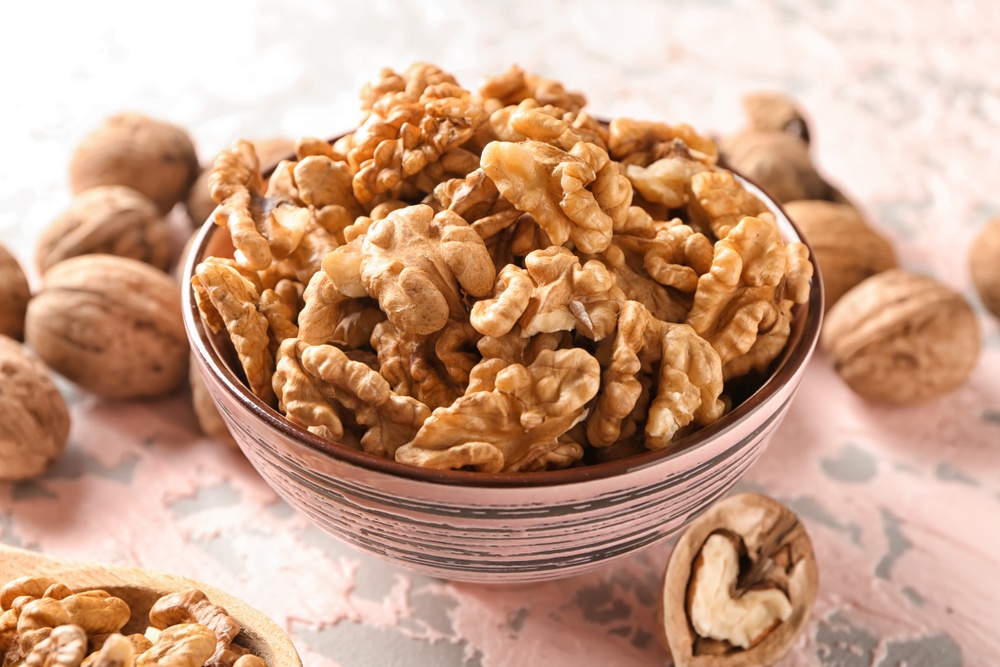
While all nuts have their advantages, walnuts are easily the most significant for your brain. They’re powerful sources of plant-based omega-3 fatty acids.
There are other advantages too. Nuts offer antioxidants, vitamin E, and healthy fats. These can all help with your brain health and your memory. So, why not get some walnuts in your diet regularly?
Soy Products
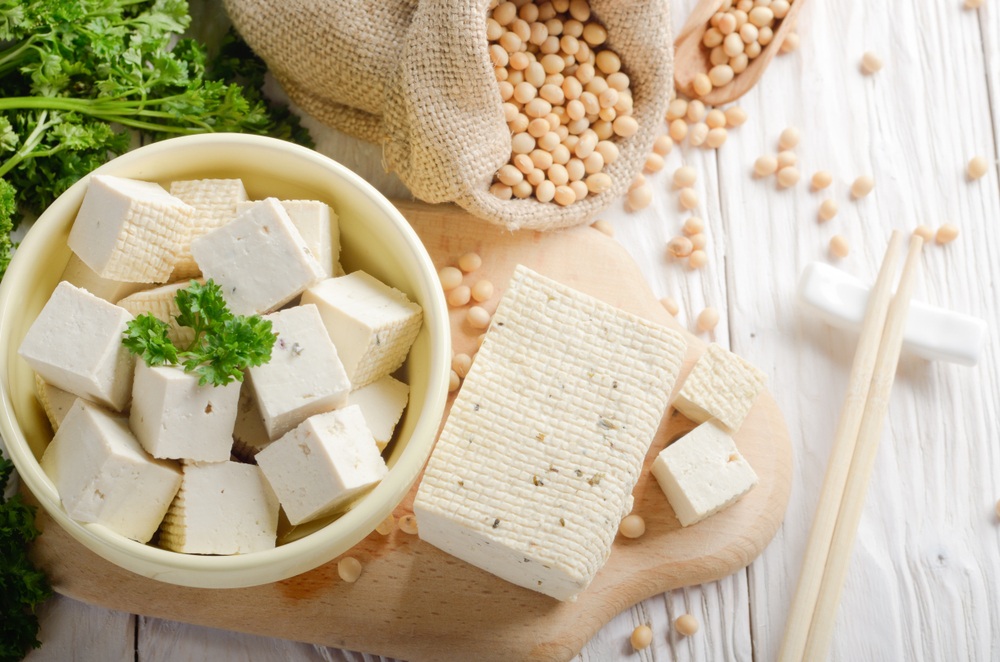
Soybeans have a mixed reputation. On the one hand, they’re often promoted as healthy ingredients, ones that can help to boost health. And, like most legumes, soybeans are an easy vegetarian source of protein. They’re one of the most popular choices for vegan dieters, simply because so many products use soybeans as a base ingredient.
There are many concerns about soybeans, including ideas that they might have estrogen-like effects in the body, that they contain antinutrients, and that they might be genetically modified.
Weeding through all the rhetoric and evidence can seem overwhelming. Right now though, there isn’t much evidence for harm from soy and plenty of evidence for benefits.
Perhaps the most important thing is to not overdo it. With so many soy-based products on the market, it’s easy to rely too heavily on soy and not enough on other sources of protein.
Keto Foods

The keto diet is an interesting idea. It focuses on cutting your carb intake right down, to the point that your body relies on fat rather than glucose as your main source of energy. Doing this produces ketones, which can help with weight loss and may also have cognitive benefits.
Plus, many keto foods contain the MCTs that we mentioned earlier. This is particularly true for anything that uses coconut oil as an ingredient. You can even get MCT oil to use in recipes.
There are other advantages too. The focus on low carbs means that keto foods tend to be low in sugar and less processed than many other foods. This can mean that they don’t spike your blood sugar either.
You’re likely to get more benefits from these foods if you’re following a keto diet compared to a regular Western diet. If you’re not following keto, you’ll need to watch your calorie intake, as keto food can be calorie-dense.
Beets
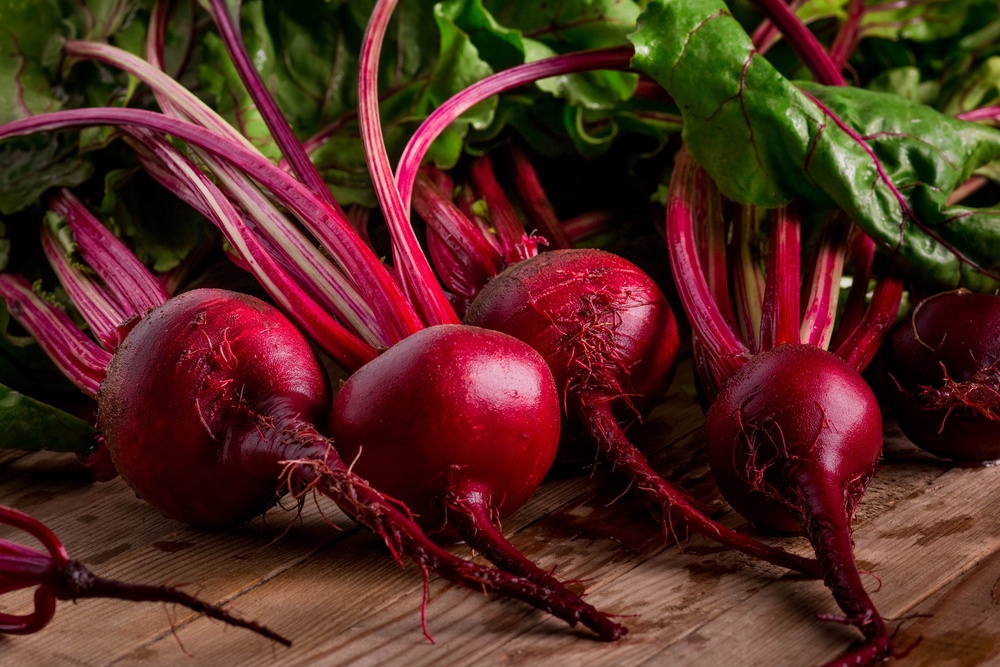
Beets are another powerful choice for nutrients. They have another advantage too. They’re a rich source of nitrates, which help to increase blood flow to the brain and decrease blood pressure. The potassium present is beneficial for blood pressure as well.
The effect has been seen directly by research looking into beet juice for seniors. Beet juice contains the same compounds as beets themselves, suggesting that eating beets could be linked to memory benefits as well.
Of course, beets can be a little difficult to use in practice. The bright red juice from the vegetable tends to stain fingers and turns other ingredients a distinct red-purple color.
You can get around this problem by focusing on golden beets instead. As the name suggests, these beets have a golden yellow color rather than being red. The nutritional profile is similar between the two types of beets, except that yellow beets and red ones have different primary pigment molecules.
There’s a flavor difference too. Yellow beets don’t taste as earthy as red beets do. Some people who hate regular beets find that they enjoy the yellow ones.
Watermelon
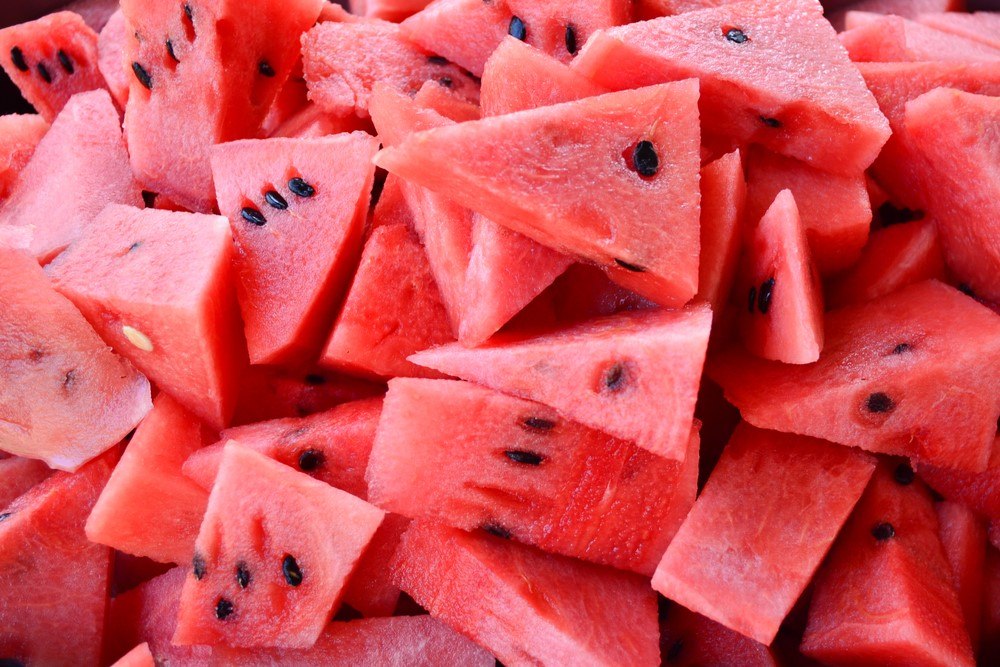
Watermelon is a delicious summer treat, but that’s not all. It is also a healthy choice, as it contains a decent amount of lycopene. Lycopene is the same antioxidant that you find in tomatoes.
The lycopene is one reason that watermelon is fantastic for cognition, but it isn’t the only one. As the name suggests, watermelon also contains a decent amount of water.
While water sounds boring, it’s also essential. Getting enough water is crucial for keeping your mind and your memory on track. It’s easy to forget this when you’re focusing on powerful food instead.
Drinks For Your Memory

While this post focuses on food, we do want to highlight a handful of drinks too. After all, drinks and food work in roughly the same way. Both are ways to get important nutrients into our bodies.
Drinks can be more helpful in some cases, as they’re often low in calories and can be consumed at any time of the day. This can be more appealing than focusing only on hearty meals. The drinks featured below aren’t your only option for boosting your memory, but they are some of the most important ones.
Rosemary Tea

It’s easy to think of scent as something nice and simple, so it’s easy to gloss over just how powerful smells can be. Multiple studies have shown links between scents and the brain.
Some smells, for example, can improve your mood. They can help you to feel better, calmer and might even reduce depression symptoms. While many people focus on essential oils, you can get many of these scent benefits from herbal teas as well. Herbal teas could be even more powerful than smells alone, as you’re ingesting some of the compounds from the plant too.
Rosemary tea is an interesting example. The essential oil has been linked to improvements in alertness and memory. There is also a long traditional link between rosemary and memory.
Studies have largely focused on rosemary essential oil, so we don’t know much about the effects of rosemary tea on memory. Still, the tea has the same scent as the oil, so it should be an easy way to improve your memory. It’s certainly worth trying for yourself.
Peppermint Tea
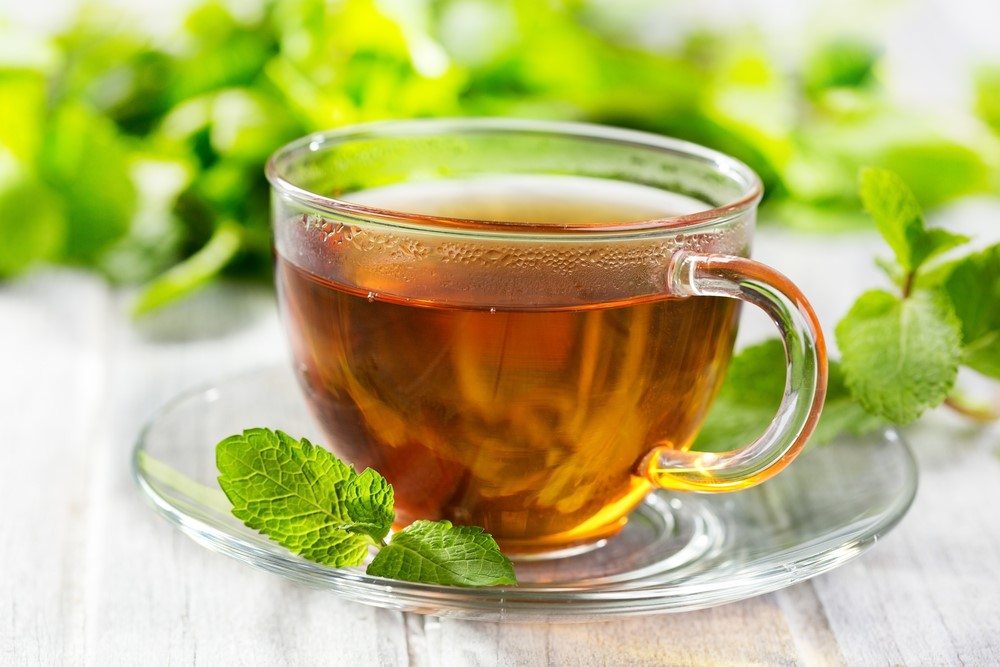
Peppermint tea isn’t just a calming drink. It also contains various important essential oils, including menthone, menthol, and limonene. The first two provide the tea with its distinctive scent. They might also be linked to a variety of benefits.
Some of the tea’s benefits may be obvious, like the ability to freshen your breath, clear your nose, and calm an upset stomach. But, did you know that the tea has been linked to your mind too? It’s though to help improve energy and alertness. Even the scent of peppermint could help to boost your concentration.
Smoothies
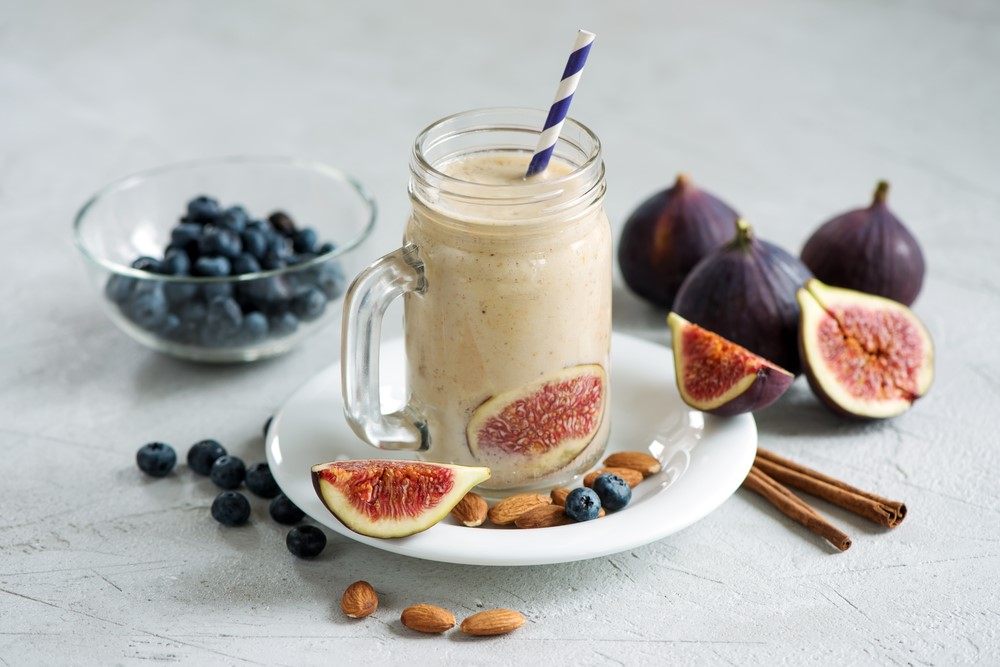
Smoothies can be healthy or unhealthy, depending on how you make them. The unhealthy ones are often packed full of sugar and don’t offer many nutrients. They’re a little like a liquid candy bar.
To make a good smoothie, you need to think about the ingredients carefully. Focus on healthy add-ins, particularly superfoods and the memory boosting foods that we’ve highlighted in this list. For example, chia seeds, blueberries, and leafy greens can all be delicious in a smoothie.
Watch the amount of sugar that you use too. You’ll probably need some sweetness in the smoothie, but just a little. Try not to use fruit juice at all and focus more on vegetables than fruits as ingredients. Be wary of bananas too. While these can give your smoothie a fantastic texture, they also contain more sugar than most other types of fruit.


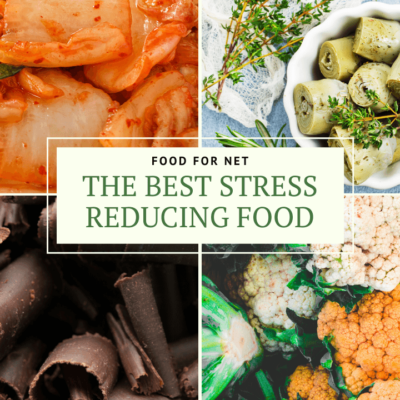

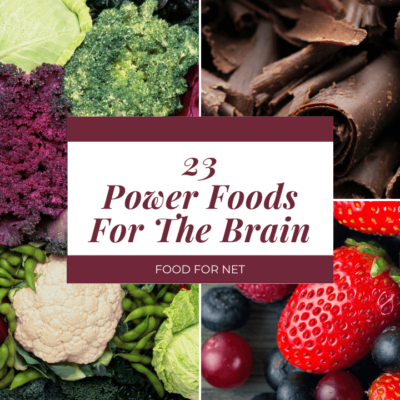
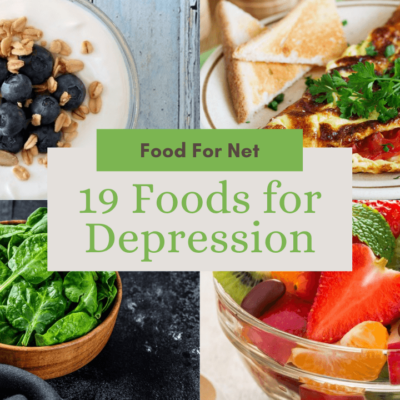

 The Best Whiskey For Whiskey Sours
The Best Whiskey For Whiskey Sours
Leave a Reply